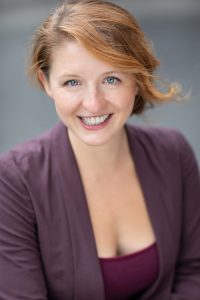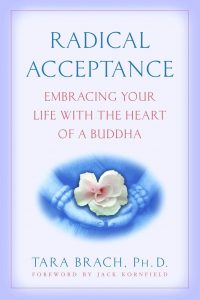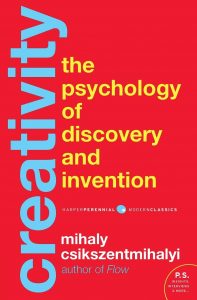 The night before everything shut down due to COVID I had just opened Women of Lockerbie – our run was cancelled. I was in rehearsal for the one-women show I had written, scheduled as the final and culminating event of my graduate school career – cancelled. I had a plane ticket to LA booked for our professional showcase, an opportunity to meet a room full of casting directors – cancelled. My graduation from my MFA program – cancelled.
The night before everything shut down due to COVID I had just opened Women of Lockerbie – our run was cancelled. I was in rehearsal for the one-women show I had written, scheduled as the final and culminating event of my graduate school career – cancelled. I had a plane ticket to LA booked for our professional showcase, an opportunity to meet a room full of casting directors – cancelled. My graduation from my MFA program – cancelled.
I knew I was not alone in my sense of loss, as theatres left and right were cancelling their seasons. I also knew it was nothing next to the pain of losing good health or losing someone you love. The world was suffering. It still is.
In this unpredictable wave of life, I feel a deep need for connection, both with myself and my community and I am so grateful for my mindfulness practice. Practicing mindfulness is a homebase to lean on, so that I can move with the flow of my life, with a sense of belonging and calm. I am able to maintain hope and see the choices I do have in any given moment. It’s become a personal mission of mine to share the gifts of mindfulness in a simple, accessible way with as many people as possible. Particularly with fellow artists. As artists, we ride many waves. We understand the temporary nature of everything. Our contracts come and go. Shows open and close. Communities form and fade. We must cultivate emotional flexibility and responsiveness. Artists nourish the world, we must also nourish ourselves.
Still, when I speak to actors about mindfulness many of them sense a disconnect between practicing mindfulness and the ability to follow impulses, to react and to “go deep” into character. And, indeed, there are differences in the state of being required for meditation and the state of being optimal for performance.
I decided to tackle this question head-on with a class at Freehold. My intention with this class is two-fold, to offer fellow artists a tool-kit for building a dedicated self-care practice, and to explore how to mindfully get into a state of readiness for performing (and mindfully get back out).
I view mindfulness as whole-self-ful-ness. Rather than a withdrawal from your senses and the world, it is a deeper, more skillful engagement. It is an awakening.When we “wake up”, we can better see the waves of our experience: thoughts, feelings, events, day-dreams, all rising and falling from our awareness. When our vision becomes clearer, we can see more choice in how we ride those waves.
If you’re looking to enrich your life with mindful awareness, the following is a list of my top ten mindfulness (whole-self-full-ness) reads! Each of these books has been an awakening for me, I hope you’ll find something useful in them as well.
- The first book I recommend is called Radical Acceptance by Tara Brach. Brach is
 one of my all-time favorite meditation teachers. She continues to teach me about kindness and self-acceptance. She teaches me how to live honestly, with an open palm for all that I experience. If you want more gratitude and compassion in your life, it’s a great read to start with.
one of my all-time favorite meditation teachers. She continues to teach me about kindness and self-acceptance. She teaches me how to live honestly, with an open palm for all that I experience. If you want more gratitude and compassion in your life, it’s a great read to start with. - Jon Kabat-Zinn is pretty much the father of mindfulness as a stress reduction technique in the way that we understand it. I love his book from 2005, Coming to Our Senses: Healing Ourselves and the World Through Mindfulness. Since that time he’s written a series of four books that break-down the concepts and ideas of that book in a detailed, elegant progression. His writing is clear and practical, a wonderful entry to a better understanding of the what and why of mindfulness.
- The Happiness Hypothesis by Jonathan Haidt is an old favorite of mine. Great if you’re a science lover like me. As a positive psychologist, Haidt dives into the science of what makes us happy. I love the analogy he uses of our minds as an elephant (all our unconscious processes) and a rider (our comparatively small amount of conscious processes). He raises the question of how we can become more skillful riders to have more sway over our elephant. In this book he takes a look at ancient eastern wisdom and modern western science side-by-side. Spoiler alert, meditation seems to be one key to a happy life.
- The next book I recommend is particularly suitable for the times, The Places That Scare You by Pema Chödrön. Pema Chödrön is an American Tibetan Buddhist. Her book may be advanced for folx new to mindfulness and meditation, as it offers traditional Buddhist mediation practices. Don’t be intimated though, this read is grounded and rich with humor, as well as golden nuggets of timeless wisdom. I love how she sheds light on the amount of bravery it takes to choose compassion in times of suffering.
- I recommend having Meditations on Intention and Being by Rolf Gates next to your coffee-maker. Gates is so relatable, it feels like he’s there with you. This book has short passages of excellent food for thought to start your day on purpose.
- You might place a copy of Catching the Big Fish by David Lynch in your bathroom. This book is part autobiography and part advice from the prolific film director. He shares bite-sized insights about his meditation experience and how it relates to
 creativity.
creativity. - Again for the science lovers, Creativity by Mihaly Csikszentmihalyi is an incredible read that really dives into the question – what is creativity? This book is all about “Flow”. Csikszentmihalyi defines the flow state in clear and cohesive terms, supported by evidence and research. He examines highly creative people and the habits that sustain them. He writes, “Creativity is about capturing those moments that make life worth living.”
- The classic Man’s Search for Meaning by Viktor Frankl is a must-read. A heart-aching journey through his life in the concentration camps and what he learned about our ability to survive in the worst of conditions. Frankl has one of my all-time favorite mindfulness quotes. If I could teach only one thing, it would be this: “Between stimulus and response there is a space, in that space is our power to choose our response. In our response lies our growth and freedom.”
- Perhaps my favorite author at the moment is Dr. Dan Siegel. I got hooked on his work with The Yes Brain, a book geared toward parenting but really should be required reading for every living human. The book I’d recommend for those interested in mindfulness is Aware: The Science and Practice of Presence. In this book Siegel offers his Wheel of Awareness practice. He dives very deep into just how connected we all truly are.
- My final recommendation is a book of poetry, The Radiance Sutras by Lorin Roche. Roche is another of my favorite meditation teachers. In his teaching he dispels many myths around meditation, framing it instead as an accessible, even pleasurable, experience available to everyone. His writing is luscious and sensorial. In this book he has translated a traditional yogic text, infusing each passage with his poetic life-loving sensibilities.
“What is this power we call Life?
Appearing as the play of flesh and breath?
How may I know this mystery and enter it more deeply?”
-Alyssa Franks
September, 2020
________________________________________________________________
Go Deep: Mindfulness for Actors with Alyssa Franks begins Sunday, October 4 at 10:30am. More information and registration on this and all fall classes can be found here.


